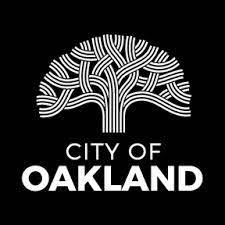
Jennifer D. King
Planted in Love

Born in 1926, James Ella was raised on her grandparent’s farm in Limestone County Alabama. The farm was walking distance from Decatur, a small city nestled alongside the Tennessee River. The rust-colored silt and clay soil of Alabama was ideal for her grandfather and the other black farmers in the area to grow cotton, corn, soybeans, and peanuts. Like the crops, James Ella was carefully and lovingly raised by her grandparents Buddy Sam and Mary Irving. James Ella remembers that her childhood home was surrounded by growing things. Her grandfather grew cotton and corn crops. Her grandmother grew greens, okra, butter beans and cucumbers. There were lush muscadine grape arbors, pomegranates, and peach trees all over the property. Black walnut and pecan trees grew in abundance.
James Ella’s grandmother taught her to sew, and she remembers sitting with the older women as they gathered in a tight circle, gossiped, and made quilts. The young James Ella exasperated her grandfather, who she called “Buddy Sam,” by asking “too many damned questions.” Still, he recognized that she enjoyed learning, and so he taught her how to read before she went to school. In no time at all James Ella would sit with him on the front porch and read articles from The Pittsburg Courier, the Chicago Defender and Saturday Evening Post to neighbors who despite being many times her age, were unable to read. When she was old enough, she and the children from neighboring farms walked the three miles to the Presbyterian church that served as a schoolhouse. She was in the sixth grade before the county built a real school for the Black children.
In the eleventh grade, James Ella left the farm and went to live with her Aunt Matilda in Chattanooga, Tennessee, and later lived with another aunt and uncle, Cleo and Amos Robinson in Huntsville, Alabama. There, she met and married a handsome military man. She and her husband lived in and around Air Force bases stretching from Guam to Springfield, Massachusetts to Tampa Florida.
These cross-country sojourns with her husband exposed James Ella to a world that she had not encountered back in Decatur. There, her world had been populated by Black families who owned their own farms and didn’t rely on white people for very much. Now she faced a world of blacks and whites, a world that was glaringly separate, but definitely not equal. As a young woman, she would experience what it meant to be Black. While racism was not openly displayed on the Tyndall Air Force Base near Panama City, Florida, life was very different outside the base gates. She could not try on hats in the store, and she was relegated to riding in the back of the city buses.
James Ella landed in California when her husband was reassigned to Parks Air Force Base in Dublin. It was 1955 and she was thirty years old. An opportunity to reconnect with old friends from Alabama brought her to Oakland. She remembers Oakland as a very happening city. It seemed to her that there was a Bid Whist party every weekend. Her Home Girl cooked all the wonderful foods from down South: fried chicken, collard and mustard greens, and blackberry pies. In Oakland, James Ella united with St. John’s Missionary Baptist Church and served on their Usher Board. As James Ella was settling into Oakland, the City of Oakland was undergoing very unsettling times. The building of the Acorn High Rise Apartments meant that the area around Market and 7th street had to be demolished. Much of West Oakland was being leveled to make way for Highway 17 (Nimitz Freeway). Many black families and business were displaced for the Cypress Viaduct and continuation of the Nimitz Freeway. West Oakland—and the lives of its Black residents and businesses– was being destroyed in the name of urban renewal.
Around 1965, the Oakland “party era” ended, and perhaps for the first time in her life, James Ella’s future became uncertain. She and her husband had separated, and she had moved to a little apartment on 19th Street. Right after that, she and the other clerks working on the Oakland Navy Base were laid off. James Ella found herself with no money, and the rent –$35.00 a month back then—was due. When the building owner came to collect the rent, James Ella did what she always had done: she told him the truth. She didn’t have any of his rent money.
James Ella had been a good tenant, and the owner liked her. He told her that he and his family had just returned from a camping trip and asked if she could come to his house and help his wife with the unpacking and the laundry. Leonard and Mildred Hesterman lived in a large, five-bedroom house in Berkeley. They also had five children named Arla, Reuel, Oran, Megan and Evrith. When James Ella entered their home, hoping to pay her rent, she had no idea she would be employed by the family for the next nine years. It never crossed her mind that members of this family would become her closest friends for the next fifty-eight years. She never imagined that these children would become her children.
Sorting and doing the laundry quickly turned into keeping the house and caring for the five children. James Ella says that the children were “good kids,” not perfect, but good. They really liked her, and she grew to love them. Their home was in an all-white neighborhood. That wasn’t new to her. She had encountered all white neighborhoods in the south, and she and her former husband had been the first Black family to purchase a home in Amherst, Massachusetts. What was new was that she was working in a Jewish household. The only thing James Ella knew about Jews was what she had read in the Bible. She asked lots of questions, and Leonard Hesterman was glad to answer them. Hesterman told James Ella that he considered Jesus one of his cousins. The Hesterman’s were not Orthodox Jews, and they didn’t keep a Kosher kitchen, but, James Ella recalls, they did celebrate the Jewish holidays and the children received their Jewish religious studies.
There was never any discomfort about their religious differences. James Ella frequently ate dinner with the family, and she was often invited to say grace. When she did, she always said “in the name of Jesus Christ” as a part of the blessing. Her work with the Hesterman’s was pretty easy. She did the laundry, got the children ready for school, and did some light housekeeping. During the day, she read to the youngest child and took a nap when the five year-old napped. Mrs. Hesterman did the cooking. James Ella laughs when she recounts that when the parents went away for the weekends, the children begged “James” to fry chicken and make them greens and cornbread.
After nine years, James Ella left the Hesterman’s. She was notified that the U.S. Post Office was hiring, and off she went. She worked for the Post Office for almost forty years, retiring as a finance auditor. It was during this time James Ella met and married Robert, whose last name just happened to be the same as her first name, thus becoming James Ella James. Her husband was a cross-country driver for Foremost Dairies, at that time the third largest dairy in the world. His position as a teamster and hers as a postal employee allowed them to enjoy the benefits of a solidly working-class family, including owning a beautiful home and the ability to purchase property. James Ella’s comfortable income allowed her to become (and remain) one the best-dressed women in Oakland.
James Ella was forty-two years old when she was introduced to an organization that would become one of the great loves of her life, the National Council of Negro Women, Inc. James Ella joined the East Bay Area Section of NCNW in 1968. She founded the Alameda County Section in 1982. The renowned Dorothy I. Height, then NCNW National President, personally appointed James Ella as a State Convenor in 1987. She served in that position for 35 years.
Although she had left their home, the Hesterman’s never left her heart. When their mother was dying the Hesterman children called their “James,” and she was at Mildred Hesterman’s bedside when she died. James Ella included her “children of the heart” with NCNW. James Ella took them to the NCNW National headquarters and introduced them to staff. Evrith is a Life Member of the Alameda County Section of NCNW.
As she grew older, the relationship between James Ella and the Hesterman children only deepened. Oran, who later became Dr. Oran Hesterman, founder of the Fair Food Network who championed getting low-income families access to fresh, healthy food, took his beloved James with him to Zimbabwe. James Ella took Arla to worship services at St. John’s Missionary Baptist Church, and the Hesterman children celebrated Passover at James Ella’s home. James Ella was honored to hold the Torah at the bat mitzvah (coming of age) for Evrith’s daughter. Mama James’ home was their home. When Megan separated from her husband, she and her daughter lived with James for a year with the daughter enrolling and attending Berkeley High.
It had been almost eighty years since James Ella left the dusty roads of Decatur, Alabama, but the loving kindness of Grandma Mary and Buddy Sam never left her. Some 2,300 miles away in Oakland, James Ella planted seeds in the hearts of a family with whom she had absolutely nothing in common. They were different races and different religions, yet they were and remain inextricably bound by love.



